Here are my favorite poems about sailing categorized:
- Poems about sailing and death
- Poems about sailing and love
- Poems about sailing and life
- Poems about sailing ships
- Short poems about sailing
So if you want the best poems about sailing, then you’re in the right place.
Let’s get started!
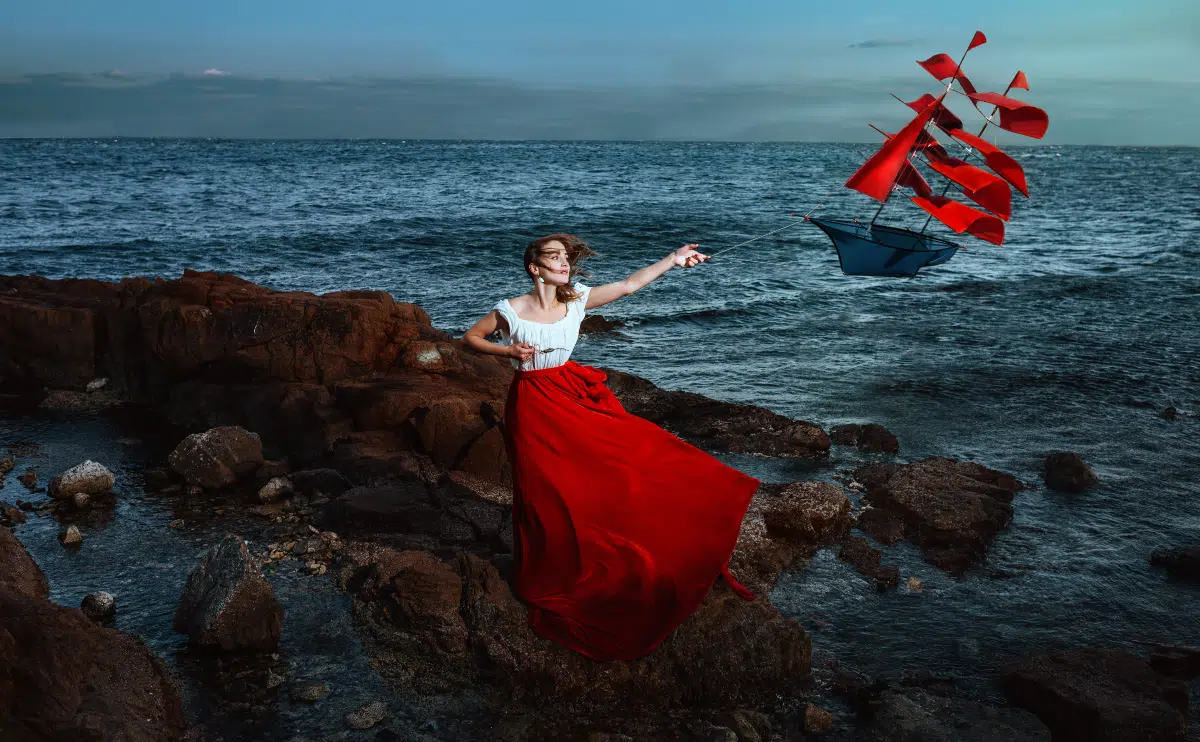
Alluring Poems About Sailing
Embark on a poetic voyage and immerse yourself in the world of sailing with a curated selection of exquisite poems.
Delve into the mysteries of the sea, the winds that guide us, and the ever-changing nature of the ocean.
From contemplative musings on life’s journey to stirring odes to the freedom of the open sea, there’s something for every poetry lover to enjoy.
Discover a treasure trove of sailing poetry and set your imagination adrift.
Keep reading and enjoy!
My #1 Favorite Poem About Sailing
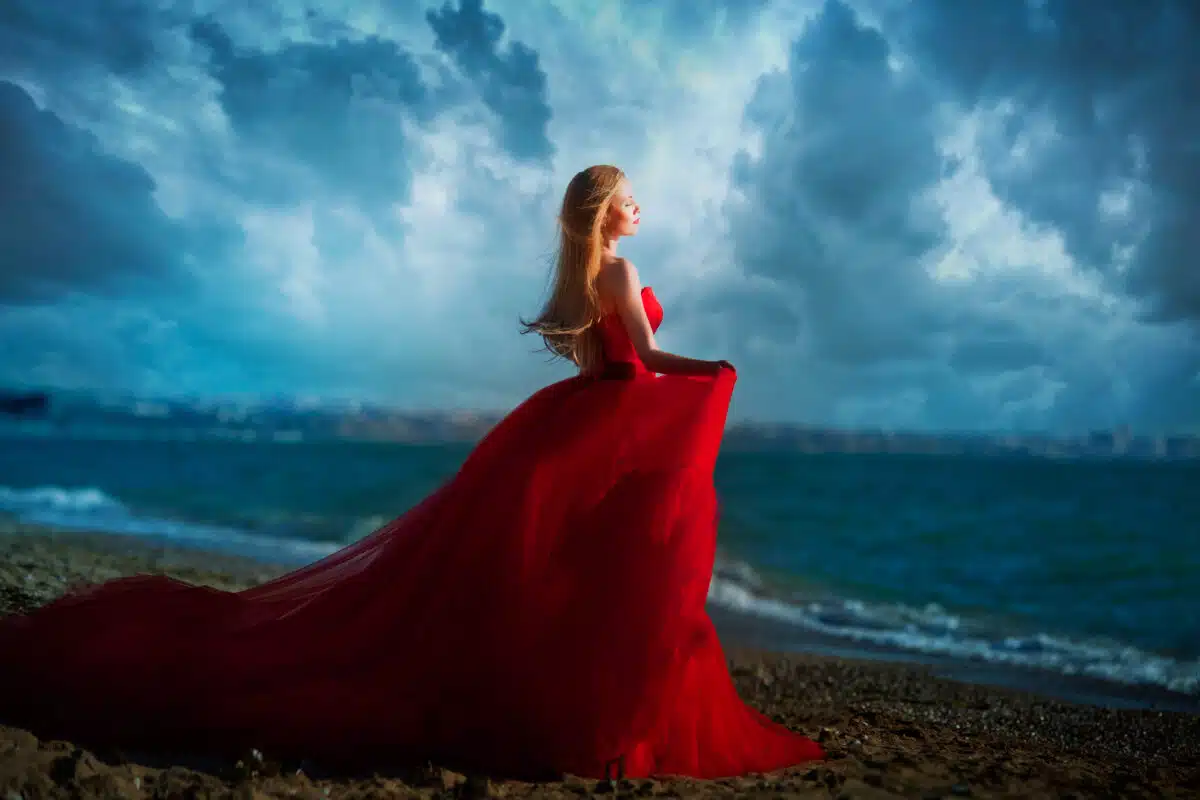
“Sea Fever” by John Masefield
I must go down to the seas again, to the lonely sea and the sky,
And all I ask is a tall ship and a star to steer her by,
And the wheel’s kick and the wind’s song and the white sail’s shaking,
And a grey mist on the sea’s face, and a grey dawn breaking,
I must down to the seas again, for the call of the running tide
Is a wild call and a clear call that may not be denied;
And all I ask is a windy day with the white clouds flying,
And the flung spray and the blown spume, and the sea-gulls crying.
I must down to the seas again, to the vagrant gypsy life,
To the gull’s way and the whale’s way where the wind’s like a whetted knife;
And all I ask is a merry yarn from a laughing fellow-rover,
And quiet sleep and a sweet dream when the long trick’s over.
Poems About Sailing and Death

“Break, Break, Break” by Alfred, Lord Tennyson
Break, break, break,
On thy cold gray stones, O Sea!
And I would that my tongue could utter
The thoughts that arise in me.
O well for the fisherman’s boy,
That he shouts with his sister at play!
O well for the sailor lad,
That he sings in his boat on the bay!
And the stately ships go on
To their haven under the hill:
But O for the touch of a vanish’d hand,
And the sound of a voice that is still!
Break, break, break,
At the foot of thy crags, O Sea!
But the tender grace of a day that is dead
Will never come back to me.
“O Captain! My Captain!” by Walt Whitman
O Captain! my Captain! our fearful trip is done,
The ship has weather’d every rack, the prize we sought is won,
The port is near, the bells I hear, the people all exulting,
While follow eyes the steady keel, the vessel grim and daring;
But O heart! heart! heart!
O the bleeding drops of red,
Where on the deck my Captain lies,
Fallen cold and dead.
O Captain! my Captain! rise up and hear the bells;
Rise up—for you the flag is flung—for you the bugle trills,
For you bouquets and ribbon’d wreaths—for you the shores a-crowding,
For you they call, the swaying mass, their eager faces turning;
Here Captain! dear father!
This arm beneath your head!
It is some dream that on the deck,
You’ve fallen cold and dead.
My Captain does not answer, his lips are pale and still,
My father does not feel my arm, he has no pulse nor will,
The ship is anchor’d safe and sound, its voyage closed and done,
From fearful trip the victor ship comes in with object won;
Exult O shores, and ring O bells!
But I with mournful tread,
Walk the deck my Captain lies,
Fallen cold and dead.
“The Full Sea Rolls and Thunders” by William Ernest Henley
The full sea rolls and thunders
In glory and in glee.
O, bury me not in the senseless earth
But in the living sea!
Ay, bury me where it surges
A thousand miles from shore
And in its brotherly unrest
I’ll range for evermore.

“Missing” by Thomas Fleming Day
A cloudless sky, a sleeping sea,
A cold gray reach of shore,
A gleam of sail upon the lee—
And nothing more.
My eyes saw that, my heart saw more:
A woman whose quivering lip
Moulded this sentence o’er and o’er,
“God keep that ship!”
God keep that ship! Her prayer, not mine,
Goes out across the sea
To where beyond the misty line
A face is turned from me.
God keep that ship! Her ship, not mine—
Mine never came back to me.
“Sail On, Sail On” by Thomas Moore
Sail on, sail on, thou fearless bark —
Where’er blows the welcome wind,
It cannot lead to scenes more dark,
More sad than those we leave behind.
Each wave that passes seems to say,
Though death beneath our smile may be,
Less cold we are, less false than they,
Whose smiling wreck’d thy hopes and thee.”
Sail on, sail on — through endless space —
Through calm — through tempest — stop no more:
The stormiest sea’s a resting-place
To him who leaves such hearts on shore.
Or — if some desert land we meet,
Where never yet false-hearted men
Profaned a world, that else were sweet —
Then rest thee, bark, but not till then.
“On the Loss of the Royal George” by William Cowper
Toll for the brave—
The brave! that are no more:
All sunk beneath the wave,
Fast by their native shore.
Eight hundred of the brave,
Whose courage well was tried,
Had made the vessel heel
And laid her on her side;
A land-breeze shook the shrouds,
And she was overset;
Down went the Royal George,
With all her crew complete.
Toll for the brave—
Brave Kempenfelt is gone,
His last sea-fight is fought,
His work of glory done.
It was not in the battle,
No tempest gave the shock,
She sprang no fatal leak,
She ran upon no rock;
His sword was in the sheath,
His fingers held the pen,
When Kempenfelt went down
With twice four hundred men.
Weigh the vessel up,
Once dreaded by our foes,
And mingle with your cup
The tears that England owes;
Her timbers yet are sound,
And she may float again,
Full charg’d with England’s thunder,
And plough the distant main;
But Kempenfelt is gone,
His victories are o’er;
And he and his eight hundred
Must plough the wave no more.

“Crossing the Bar” by Alfred, Lord Tennyson
Sunset and evening star,
And one clear call for me!
And may there be no moaning of the bar,
When I put out to sea,
But such a tide as moving seems asleep,
Too full for sound and foam,
When that which drew from out the boundless deep
Turns again home.
Twilight and evening bell,
And after that the dark!
And may there be no sadness of farewell,
When I embark;
For tho’ from out our bourne of Time and Place
The flood may bear me far,
I hope to see my Pilot face to face
When I have cross’d the bar.
“The Sands of Dee” by Charles Kingsley
‘O Mary, go and call the cattle home,
And call the cattle home,
And call the cattle home
Across the sands of Dee;’
The western wind was wild and dank with foam,
And all alone went she.
The western tide crept up along the sand,
And o’er and o’er the sand,
And round and round the sand,
As far as eye could see.
The rolling mist came down and hid the land:
And never home came she.
“The Sailor’s Consolation” by William Pitt
One night came on a hurricane,
The sea was mountains rolling,
When Barney Buntline turned his quid,
And said to Billy Bowling:
“A strong nor-wester’s blowing, Bill;
Hark! don’t ye hear it roar, now?
Lord help ’em, how I pities them
Unhappy folks on shore now!
“Foolhardy chaps who live in towns,
What danger they are all in,
And now lie quaking in their beds,
For fear the roof should fall in;
Poor creatures! how they envies us,
And wishes, I’ve a notion,
For our good luck, in such a storm,
To be upon the ocean!
“And as for them who’re out all day
On business from their houses,
And late at night are coming home,
To cheer their babes and spouses,—
While you and I, Bill, on the deck
Are comfortably lying,
My eyes! what tiles and chimney-pots
About their heads are flying!
“And very often have we heard
How men are killed and undone
By overturns of carriages,
By thieves, and fires in London;
We know what risks all landsmen run,
From noblemen to tailors;
Then, Bill, let us thank Providence
That you and I are sailors.”

“Emigravit” by Helen Fiske Jackson
With sails full set, the ship her anchor weighs.
Strange names shine out beneath her figure head.
What glad farewells with eager eyes are said!
What cheer for him who goes, and him who stays!
Fair skies, rich lands, new homes, and untried days
Some go to seek: the rest but wait instead,
Watching the way wherein their comrades led,
Until the next stanch ship her flag doth raise.
Who knows what myriad colonies there are
Of fairest fields, and rich, undreamed-of gains
Thick planted in the distant shining plains
Which we call sky because they lie so far?
Oh, write of me, not “Died in bitter pains,”
But “Emigrated to another star!”
Poems About Sailing and Love
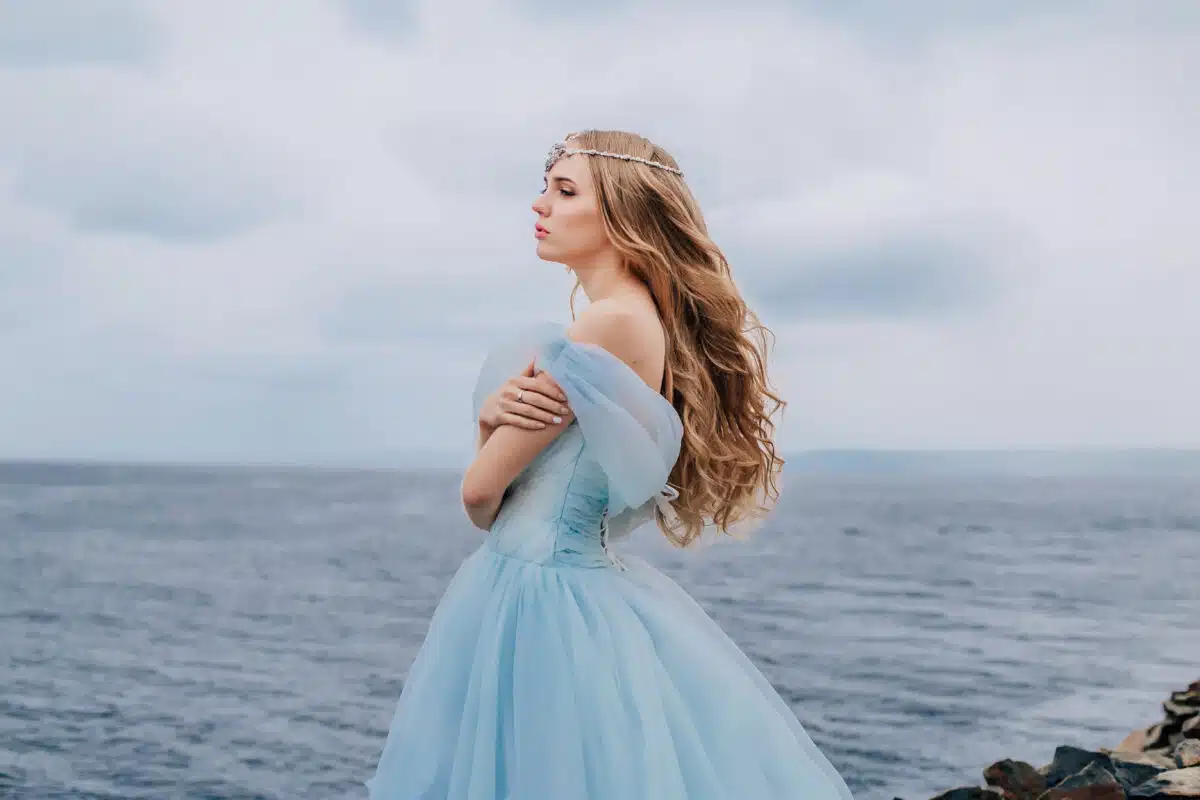
“The Sailor’s Sweetheart” by Duncan Campbell Scott
O if love were had for asking,
In the markets of the town,
Hardly a lass would think to wear
A fine silken gown:
But love is had by grieving
By choosing and by leaving,
And there’s no one now to ask me
If heavy lies my heart.
O if love were had for a deep wish
In the deadness of the night,
There’d be a truce to longing
Between the dusk and the light:
But love is had for sighing,
For living and for dying,
And there’s no one now to ask me
If heavy lies my heart.
O if love were had for taking
Like honey from the hive,
The bees that made the tender stuff
Could hardly keep alive:
But love it is a wounded thing,
A tremor and a smart,
And there’s no one left to kiss me now
Over my heavy heart.
“Sailing Beyond Seas” by Jean Ingelow
Methought the stars were blinking bright,
And the old brig’s sails unfurled;
I said, “I will sail to my love this night
At the other side of the world.”
I stepped aboard, – we sailed so fast, –
The sun shot up from the bourne;
But a dove that perched upon the mast
Did mourn, and mourn, and mourn.
O fair dove! O fond dove!
And dove with the white breast,
Let me alone, the dream is my own,
And my heart is full of rest.
My true love fares on this great hill,
Feeding his sheep for aye;
I looked in his hut, but all was still,
My love was gone away.
I went to gaze in the forest creek,
And the dove mourned on apace;
No flame did flash, nor fair blue reek
Rose up to show me his place.
O last love! O first love!
My love with the true heart,
To think I have come to this your home,
And yet – we are apart!
My love! He stood at my right hand,
His eyes were grave and sweet.
Methought he said, “In this far land,
O, is it thus we meet!
Ah, maid most dear, I am not here;
I have no place, – no part, –
No dwelling more by sea or shore,
But only in thy heart.”
O fair dove! O fond dove!
Till night rose over the bourne,
The dove on the mast, as we sailed fast,
Did mourn, and mourn, and mourn.
“Dover Beach” by Matthew Arnold
The sea is calm tonight.
The tide is full, the moon lies fair
Upon the straits; on the French coast, the light
Gleams and is gone; the cliffs of England stand,
Glimmering and vast, out in the tranquil bay.
Come to the window, sweet is the night-air!
Only, from the long line of spray
Where the sea meets the moon-blanched land,
Listen! you hear the grating roar
Of pebbles which the waves draw back, and fling,
At their return, up the high strand,
Begin, and cease, and then again begin,
With tremulous cadence slow, and bring
The eternal note of sadness in.
Sophocles long ago
Heard it on the Aegean, and it brought
Into his mind the turbid ebb and flow
Of human misery; we
Find also in the sound a thought,
Hearing it by this distant northern sea.
The Sea of Faith
Was once, too, at the full, and round earth’s shore
Lay like the folds of a bright girdle furled.
But now I only hear
Its melancholy, long, withdrawing roar,
Retreating, to the breath
Of the night-wind, down the vast edges drear
And naked shingles of the world.
Ah, love, let us be true
To one another! for the world, which seems
To lie before us like a land of dreams,
So various, so beautiful, so new,
Hath really neither joy, nor love, nor light,
Nor certitude, nor peace, nor help for pain;
And we are here as on a darkling plain
Swept with confused alarms of struggle and flight,
Where ignorant armies clash by night.

“The Sailor’s Wife” by William Julius Mickle
And are ye sure the news is true?
And are ye sure he’s weel?
Is this a time to think o’ wark?
Ye jades, lay by your wheel;
Is this the time to spin a thread,
When Colin’s at the door?
Reach down my cloak, I’ll to the quay
And see him come ashore.
For there’s nae luck about the house,
There’s nae luck at a’
There’s little pleasure in the house
When our gudeman’s awa’.
And gie to me my bigonet,
My bishop’s satin gown;
For I maun tell the baillie’s wife
That Colin’s in the town.
My Turkey slippers maun gae on,
My stockins pearly blue;
It’s a’ to pleasure our gudeman,
For he’s baith leal and true.
Rise, lass, and make a clean fireside,
Put on the muckle pot;
Gie little Kate her button gown
And Jock his Sunday coat;
And mak their shoon as black as slaes,
Their hose as white as snaw;
It’s a’ to please my ain gudeman,
For he’s been long awa.
There’s twa fat hens upo’ the coop
Been fed this month and mair;
Mak haste and thraw their necks about,
That Colin weel may fare;
And spread the table neat and clean,
Gar ilka thing look braw,
For wha can tell how Colin fared
When he was far awa?
Sae true his heart, sae smooth his speech.
His breath like caller air;
His very foot has music in’t
As he comes up the stair–
And will I see his face again?
And will I hear him speak?
I’m downright dizzy wi’ the thought,
In troth I’m like to greet!
If Colin’s weel, and weel content,
I hae nae mair to crave:
And gin I live to keep him sae,
I’m blest aboon the lave:
And will I see his face again,
And will I hear him speak?
I’m downright dizzy wi’ the thought,
In troth I’m like to greet!
For there’s nae luck about the house,
There’s nae luck at a’;
There’s little pleasure in the house
When our gudeman’s awa.
Poems About Sailing and Life

“He Had His Dream” by Paul Laurence Dunbar
He had his dream, and all through life,
Worked up to it through toil and strife.
Afloat fore’er before his eyes,
It colored for him all his skies:
The storm–cloud dark
Above his bark,
The calm and listless vault of blue
Took on its hopeful hue,
It tinctured every passing beam—
He had his dream.
He labored hard and failed at last,
His sails too weak to bear the blast,
The raging tempests tore away
And sent his beating bark astray.
But what cared he
For wind or sea!
He said, “The tempest will be short,
My bark will come to port.”
He saw through every cloud a gleam—
He had his dream.
“Sailing to Byzantium” by W. B. Yeats
That is no country for old men. The young
In one another’s arms, birds in the trees
—Those dying generations—at their song,
The salmon-falls, the mackerel-crowded seas,
Fish, flesh, or fowl, commend all summer long
Whatever is begotten, born, and dies.
Caught in that sensual music all neglect
Monuments of unageing intellect.
An aged man is but a paltry thing,
A tattered coat upon a stick, unless
Soul clap its hands and sing, and louder sing
For every tatter in its mortal dress,
Nor is there singing school but studying
Monuments of its own magnificence;
And therefore I have sailed the seas and come
To the holy city of Byzantium.
O sages standing in God’s holy fire
As in the gold mosaic of a wall,
Come from the holy fire, perne in a gyre,
And be the singing-masters of my soul.
Consume my heart away; sick with desire
And fastened to a dying animal
It knows not what it is; and gather me
Into the artifice of eternity.
Once out of nature I shall never take
My bodily form from any natural thing,
But such a form as Grecian goldsmiths make
Of hammered gold and gold enamelling
To keep a drowsy Emperor awake;
Or set upon a golden bough to sing
To lords and ladies of Byzantium
Of what is past, or passing, or to come.
“The Homing” by John Jerome Rooney
Admiral, Admiral, sailing home—
Sailing home through the far, dim seas,
Know you the sound that over the foam
Rises and sinks in the sunset breeze?
Know you the thrill and know you the start
That pulses and runs through the wind and the spray,
Pulses and runs from a nation’s heart
To meet you and greet you over the way?
Not for the might of your guns alone,
Thundering doom by the Eastern gate;
Not for the bugle of victory blown,—
Not for these do we watch and wait!
The glory is sweet—ay, sweet to the soul
Of a people proud in the pride of youth,
But sweeter to know, as the seasons roll,
Our men, as of old, are men in truth!

“Hope” by William Dean Howells
We sailed and sailed upon the desert sea
Where for whole days we alone seemed to be.
At last we saw a dim, vague line arise
Between the empty billows and the skies,
That grew and grew until it wore the shape
Of cove and inlet, promontory and cape;
Then hills and valleys, rivers, fields, and woods,
Steeples and roofs, and village neighborhoods.
And then I thought, “Sometime I shall embark
Upon a sea more desert and more dark
Than ever this was, and between the skies
And empty billows I shall see arise
Another world out of that waste and lapse,
Like yonder land. Perhaps—perhaps—perhaps!”
“Donald” by Henry Abbey
O white, white, light moon, that sailest in the sky,
Look down upon the whirling world, for thou art up so high,
And tell me where my Donald is who sailed across the sea,
And make a path of silver light to lead him back to me.
O white, white, bright moon, thy cheek is coldly fair;
A little cloud beside thee seems thy wildly floating hair;
And if thou wouldst not have me wan, and pale, and cold like thee,
Go, make a mighty tide to draw my Donald back to me.
O light, white, bright moon, that dost so fondly shine,
There is not a lily in the world but hides its face from thine:
I too shall go and hide my face close in the dust from thee,
Unless with light and tide thou bring my Donald back to me.
“Never Weather-Beaten Sail” by Thomas Campion
Never weather-beaten sail more willing bent to shore,
Never tirèd pilgrim’s limbs affected slumber more,
Than my wearied sprite now longs to fly out of my troubled breast.
O come quickly, sweetest Lord, and take my soul to rest!
Ever blooming are the joys of heaven’s high Paradise,
Cold age deafs not there our ears nor vapour dims our eyes:
Glory there the sun outshines; whose beams the blessèd only see.
O come quickly, glorious Lord, and raise my sprite to Thee!
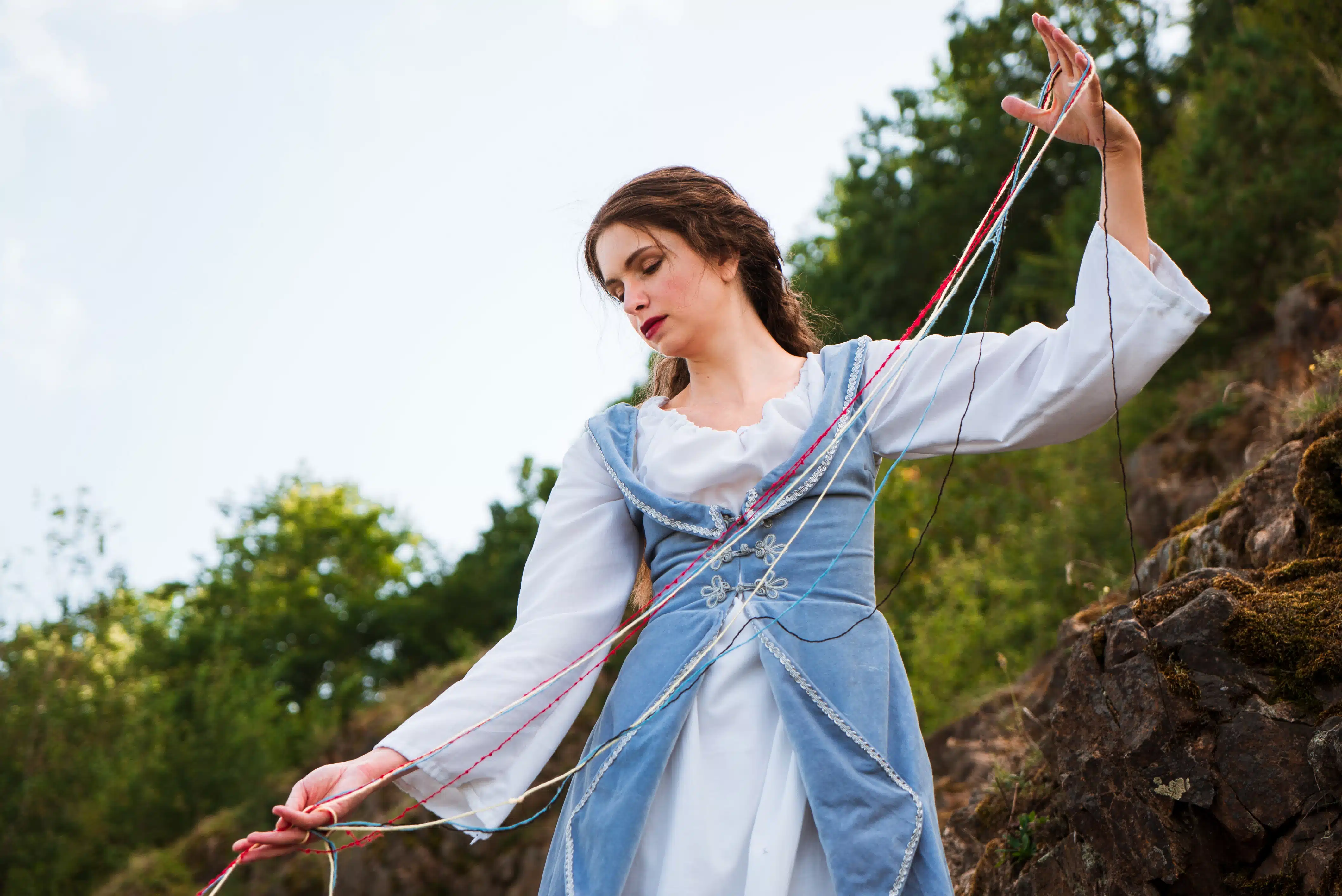
“Sailor’s Yarn” by James McIntyre
While voyaging on northern seas
For days we could not catch a breeze,
But were held fast as if in vice
Surrounded by the bergs of ice,
We could not move the ship or boat
But on low, flat iceberg we did float;
Of provisions we took good store
With big oars we rowed the berg to shore,
And pride and joy each one feels
When we had caught ten thousand seals,
And our brave boys each one they dare
To boldly capture great white bear;
On floating berg we built with boards
A storehouse for to hold our hordes,
We had a stove and stock of coal,
So we enjoyed this voyage droll,
In centre of berg we dug a hole
And erected a strong pole,
The frost and ice soon held it fast
And well it served us for a mast,
On which we stretched out our sails
And scud along before the gales,
Until we came to an island
And on its sides it seemed highland,
And Britain being queen of seas,
For her this island we did seize,
To give her new coaling station
For to benefit the nation,
So when we had sailed landward
We erected British standard
On the highest mountain top,
Which graceful down to sea did slope,
We cast our anchor in its side
So to explore it far and wide,
But what was our astonishment
Without the least admonishment,
Our island soon away did float
As if it was a mighty boat.
Can you believe this wondrous tale?
It proved to be a monster whale,
And o’er the ocean quick it flew
With our great iceberg and our crew,
Until it came to Newfoundland,
Where all did safe on the ground land;
Poor whale was stranded on the beach
And his sea home no more could reach,
Our crew in great wealth each on shares,
By selling whale and seals and bears,
We hired steam tug to reach our ship,
Now free from ice we had quick trip,
And she being loaded down with seal,
And we all shared in common weal,
For joy each of us had reason,
Making two trips in one season.
Poems About Sailing Ships

“The Sea” by Barry Cornwall
The sea! the sea! the open sea!
The blue, the fresh, the ever free!
Without a mark, without a bound,
It runneth the earth’s wide regions round;
It plays with the clouds; it mocks the skies;
Or like a cradled creature lies.
I ’m on the sea! I ’m on the sea!
I am where I would ever be;
With the blue above, and the blue below,
And silence wheresoe’er I go;
If a storm should come and awake the deep,
What matter? I shall ride and sleep.
I love, O, how I love to ride
On the fierce, foaming, bursting tide,
When every mad wave drowns the moon
Or whistles aloft his tempest tune,
And tells how goeth the world below,
And why the sou’west blasts do blow.
I never was on the dull, tame shore,
But I lov’d the great sea more and more,
And backwards flew to her billowy breast,
Like a bird that seeketh its mother’s nest;
And a mother she was, and is, to me;
For I was born on the open sea!
The waves were white, and red the morn,
In the noisy hour when I was born;
And the whale it whistled, the porpoise roll’d,
And the dolphins bared their backs of gold;
And never was heard such an outcry wild
As welcom’d to life the ocean-child!
I ’ve liv’d since then, in calm and strife,
Full fifty summers, a sailor’s life,
With wealth to spend and a power to range,
But never have sought nor sighed for change;
And Death, whenever he comes to me,
Shall come on the wild, unbounded sea!
“The Sailing of the Long-Ships” by Henry John Newbolt, Sir
They saw the cables loosened, they saw the gangways cleared,
They heard the women weeping, they heard the men that cheered;
Far off, far off, the tumult faded and died away,
And all alone the sea-wind came singing up the Bay.
“I came by Cape St. Vincent, I came by Trafalgar,
I swept from Torres Vedras to golden Vigo Bar,
I saw the beacons blazing that fired the world with light
When down their ancient highway your fathers passed to fight.
“O race of tireless fighters, flushed with a youth renewed,
Right well the wars of Freedom befit the Sea-kings’ brood;
Yet as ye go forget not the fame of yonder shore,
The fame ye owe your fathers and the old time before.
“Long-suffering were the Sea-kings, they were not swift to kill,
But when the sands had fallen they waited no man’s will;
Though all the world forbade them, they counted not nor cared,
They weighed not help or hindrance, they did the thing they dared.
“The Sea-kings loved not boasting, they cursed not him that cursed,
They honoured all men duly, and him that faced them, first;
They strove and knew not hatred, they smote and toiled to save,
They tended whom they vanquished, they praised the fallen brave.
“Their fame’s on Torres Vedras, their fame’s on Vigo Bar,
Far-flashed to Cape St. Vincent it burns from Trafalgar;
Mark as ye go the beacons that woke the world with light
When down their ancient highway your fathers passed to fight.”
“Young Sailor” by Langston Hughes
He carries
His own strength
And his own laughter,
His own today
And his own hereafter,––
This strong young sailor
Of the wide seas.
What is money for?
To spend, he says.
And wine?
To drink.
And women?
To love.
And today?
For joy.
And tomorrow?
For joy.
And the green sea
For strength,
And the brown land
For laughter.
And nothing hereafter.
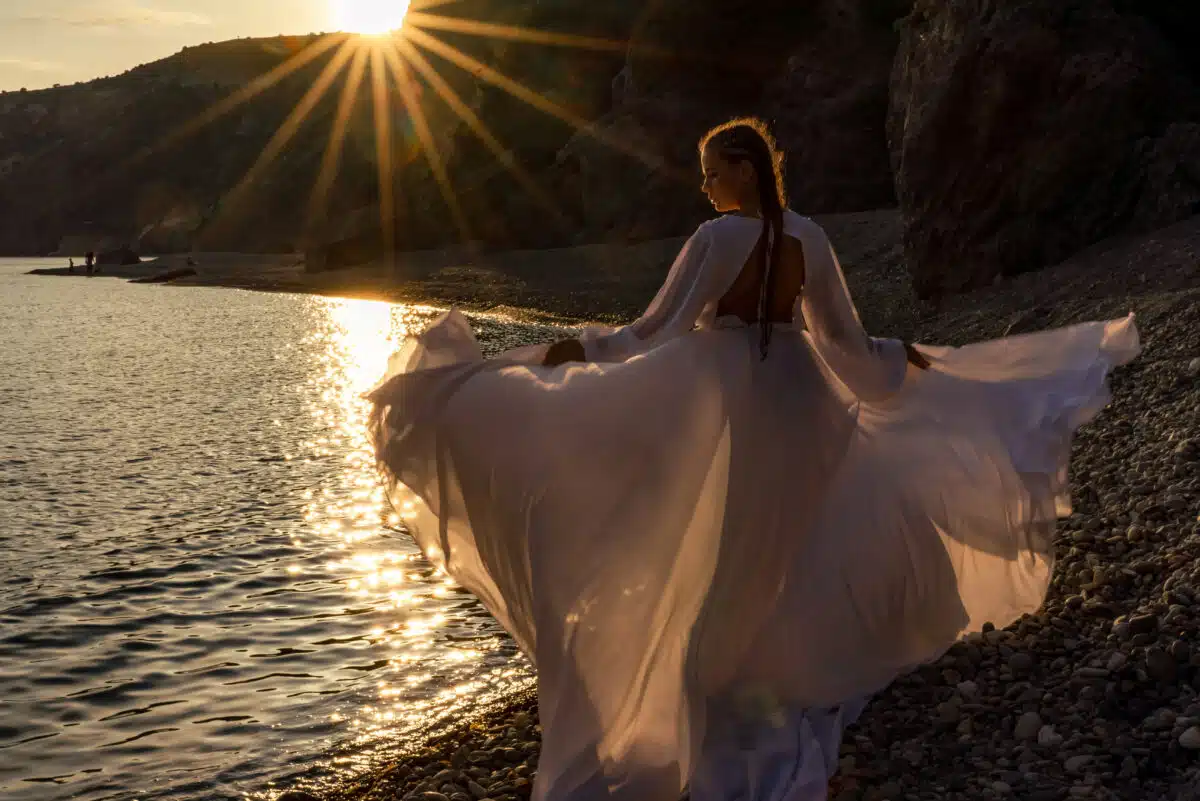
“To Sea!” by Thomas Lovell Beddoes
To sea, to sea! The calm is o’er;
The wanton water leaps in sport,
And rattles down the pebbly shore;
The dolphin wheels, the sea-cow snorts,
And unseen mermaids’ pearly song
Comes bubbling up, the weeds among.
Fling broad the sail, dip deep the oar:
To sea, to sea! The calm is o’er.
To sea, to sea! our wide-winged bark
Shall billowy cleave its sunny way,
And with its shadow, fleet and dark,
Break the caved Tritons’ azure day,
Like mighty eagle soaring light
O’er antelopes on Alpine height.
The anchor heaves, the ship swings free,
The sails swell full. To sea, to sea!
“The Secret of the Sea” by Henry Wadsworth Longfellow
Ah! what pleasant visions haunt me
As I gaze upon the sea!
All the old romantic legends,
All my dreams, come back to me.
Sails of silk and ropes of sandal,
Such as gleam in ancient lore;
And the singing of the sailors,
And the answer from the shore!
Most of all, the Spanish ballad
Haunts me oft, and tarries long,
Of the noble Count Arnaldos
And the sailor’s mystic song.
Like the long waves on a sea—beach,
Where the sand as silver shines,
With a soft, monotonous cadence,
Flow its unrhymed lyric lines;—
Telling how the Count Arnaldos,
With his hawk upon his hand,
Saw a fair and stately galley,
Steering onward to the land;—
How he heard the ancient helmsman
Chant a song so wild and clear,
That the sailing sea—bird slowly
Poised upon the mast to hear,
Till his soul was full of longing,
And he cried, with impulse strong,—
‘Helmsman! for the love of heaven,
Teach me, too, that wondrous song!’
‘Wouldst thou,’—so the helmsman answered,
‘Learn the secret of the sea?
Only those who brave its dangers
Comprehend its mystery!’
In each sail that skims the horizon,
In each landward—blowing breeze,
I behold that stately galley,
Hear those mournful melodies;
Till my soul is full of longing
For the secret of the sea,
And the heart of the great ocean
Sends a thrilling pulse through me.
“A Ballad of John Silver” by John Masefield
We were schooner-rigged and rakish, with a long and lissome hull,
And we flew the pretty colours of the cross-bones and the skull;
We’d a big black Jolly Roger flapping grimly at the fore,
And we sailed the Spanish Water in the happy days of yore.
We’d a long brass gun amidships, like a well-conducted ship,
We had each a brace of pistols and a cutlass at the hip;
It’s a point which tells against us, and a fact to be deplored,
But we chased the goodly merchant-men and laid their ships aboard.
Then the dead men fouled the scuppers and the wounded filled the chains,
And the paint-work all was spatter-dashed with other people’s brains,
She was boarded, she was looted, she was scuttled till she sank,
And the pale survivors left us by the medium of the plank.
O! then it was (while standing by the taffrail on the poop)
We could hear the drowning folk lament the absent chicken-coop;
Then, having washed the blood away, we’d little else to do
Than to dance a quiet hornpipe as the old salts taught us to.
O! the fiddle on the fo’c’s’le, and the slapping naked soles,
And the genial “Down the middle, Jake, and curtsey when she rolls!”
With the silver seas around us and the pale moon overhead,
And the look-out not a-looking and his pipe-bowl glowing red.
Ah! the pig-tailed, quidding pirates and the pretty pranks we played,
All have since been put a stop-to by the naughty Board of Trade;
The schooners and the merry crews are laid away to rest,
A little south the sunset in the Islands of the Blest.

“The Sailor’s Mother” by William Wordsworth
The ancient spirit is not dead;
Old times, thought I, are breathing there;
Proud was I that my country bred
Such strength, a dignity so fair:
She begged an alms, like one in poor estate;
I looked at her again, nor did my pride abate.
One morning (raw it was and wet
A foggy day in winter time)
A Woman on the road I met,
Not old, though something past her prime:
Majestic in her person, tall and straight;
And like a Roman matron’s was her mien and gait.
When from these lofty thoughts I woke,
“What is it,” said I, “that you bear,
Beneath the covert of your Cloak,
Protected from this cold damp air? “
She answered, soon as she the question heard,
“A simple burthen, Sir, a little Singing-bird.”
And, thus continuing, she said,
“I had a Son, who many a day
Sailed on the seas, but he is dead;
In Denmark he was cast away:
And I have travelled weary miles to see
If aught which he had owned might still remain for me.
The bird and cage they both were his:
‘Twas my Son’s bird; and neat and trim
He kept it: many voyages
The singing-bird had gone with him;
When last he sailed, he left the bird behind;
From boding’s, as might be, that hung upon his mind.
He to a fellow-lodger’s care
Had left it, to be watched and fed,
And pipe its song in safety; there
I found it when my Son was dead;
And now, God help me for my little wit!
I bear it with me, Sir; he took so much delight in it.”
“Song for All Seas, All Ships” by Walt Whitman
Today a rude brief recitative,
Of ships sailing the Seas, each with its special flag or ship-signal;
Of unnamed heroes in the ships—Of waves spreading and spreading, far as the eye can reach;
Of dashing spray, and the winds piping and blowing;
And out of these a chant, for the sailors of all nations,
Fitful, like a surge.
Of Sea-Captains young or old, and the Mates—and of all intrepid Sailors;
Of the few, very choice, taciturn, whom fate can never surprise, nor death dismay,
Pick’d sparingly, without noise, by thee, old Ocean—chosen by thee,
Thou Sea, that pickest and cullest the race, in Time, and unitest Nations!
Suckled by thee, old husky Nurse—embodying thee!
Indomitable, untamed as thee.
(Ever the heroes, on water or on land, by ones or twos appearing,
Ever the stock preserv’d, and never lost, though rare—enough for seed preserv’d.)
Flaunt out O Sea, your separate flags of nations!
Flaunt out, visible as ever, the various ship-signals!
But do you reserve especially for yourself, and for the soul of man, one flag above all the rest,
A spiritual woven Signal, for all nations, emblem of man elate above death,
Token of all brave captains, and all intrepid sailors and mates,
And all that went down doing their duty;
Reminiscent of them—twined from all intrepid captains, young or old;
A pennant universal, subtly waving, all time, o’er all brave sailors,
All seas, all ships.
“The Ship of State” by Henry Wadsworth Longfellow
Thou, too, sail on, O Ship of State!
Sail on, O Union, strong and great!
Humanity with all its fears,
With all the hopes of future years,
Is hanging breathless on thy fate!
We know what Master laid thy keel,
What Workmen wrought thy ribs of steel,
Who made each mast, and sail, and rope,
What anvils rang, what hammers beat,
In what a forge and what a heat
Were shaped the anchors of thy hope!
Fear not each sudden sound and shock,
‘Tis of the wave and not the rock;
‘Tis but the flapping of the sail,
And not a rent made by the gale!
In spite of rock and tempest’s roar,
In spite of false lights on the shore,
Sail on, nor fear to breast the sea!
Our hearts, our hopes, are all with thee.
Our hearts, our hopes, our prayers, our tears,
Our faith triumphant o’er our fears,
Are all with thee, -are all with thee!

“After the Sea-Ship” by Walt Whitman
After the Sea-Ship–after the whistling winds;
After the white-gray sails, taut to their spars and ropes,
Below, a myriad, myriad waves, hastening, lifting up their necks,
Tending in ceaseless flow toward the track of the ship:
Waves of the ocean, bubbling and gurgling, blithely prying,
Waves, undulating waves–liquid, uneven, emulous waves,
Toward that whirling current, laughing and buoyant, with curves,
Where the great Vessel, sailing and tacking, displaced the surface;
Larger and smaller waves, in the spread of the ocean, yearnfully flowing;
The wake of the Sea-Ship, after she passes–flashing and frolicsome, under the sun,
A motley procession, with many a fleck of foam, and many fragments,
Following the stately and rapid Ship–in the wake following.
“Aboard at a Ship’s Helm” by Walt Whitman
Aboard, at a ship’s helm,
A young steersman, steering with care.
A bell through fog on a sea-coast dolefully ringing,
An ocean-bell–O a warning bell, rock’d by the waves.
O you give good notice indeed, you bell by the sea-reefs ringing,
Ringing, ringing, to warn the ship from its wreck-place.
For, as on the alert, O steersman, you mind the bell’s admonition,
The bows turn,–the freighted ship, tacking, speeds away under her
gray sails,
The beautiful and noble ship, with all her precious wealth, speeds
away gaily and safe.
But O the ship, the immortal ship! O ship aboard the ship! 10
O ship of the body–ship of the soul–voyaging, voyaging, voyaging.
“Cargoes” by John Masefield
Quinquireme of Nineveh from distant Ophir,
Rowing home to haven in sunny Palestine,
With a cargo of ivory,
And apes and peacocks,
Sandalwood, cedarwood, and sweet white wine.
Stately Spanish galleon coming from the Isthmus,
Dipping through the Tropics by the palm-green shores,
With a cargo of diamonds,
Emeralds, amethysts,
Topazes, and cinnamon, and gold moidores.
Dirty British coaster with a salt-caked smoke stack,
Butting through the Channel in the mad March days,
With a cargo of Tyne coal,
Road-rails, pig-lead,
Firewood, iron-ware, and cheap tin trays.
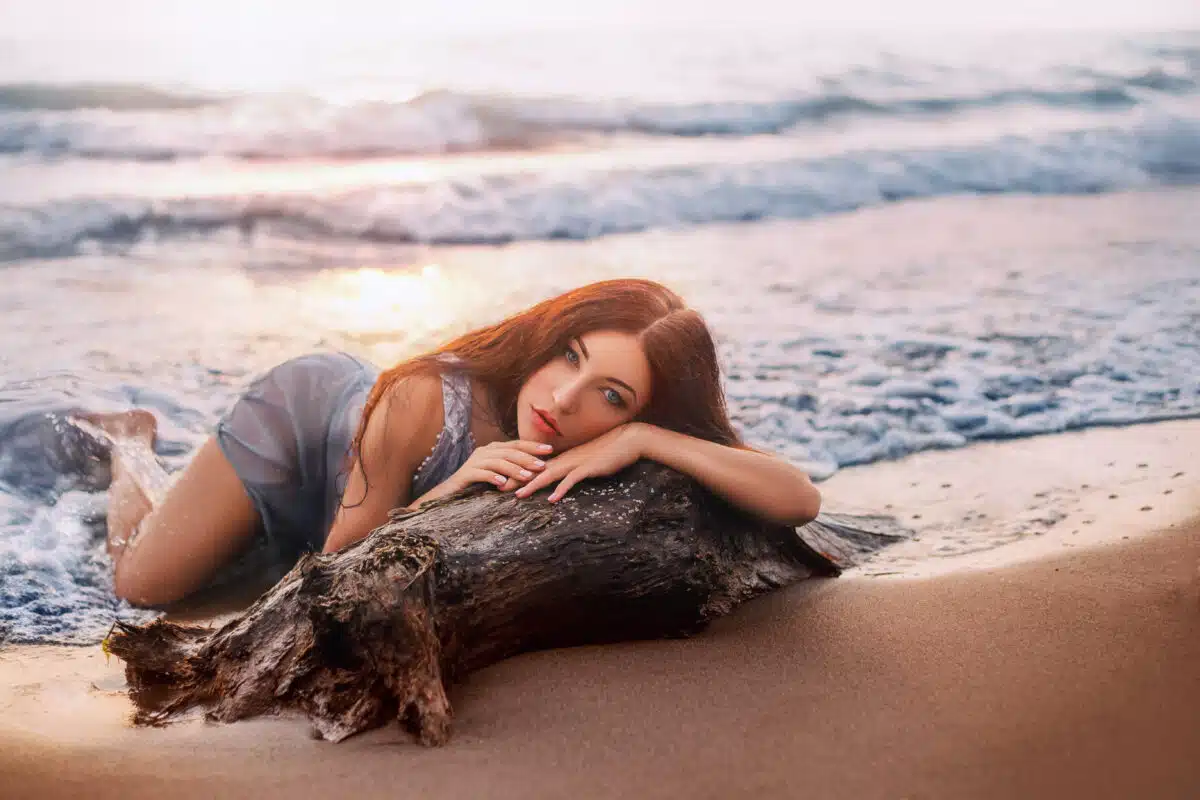
“A life on the Ocean Wave” by Epes Sargent
A life on the ocean wave,
A home on the rolling deep,
Where the scattered waters rave,
And the winds their revels keep:
Like an eagle caged, I pine
On this dull, unchanging shore:
Oh! give me the flashing brine,
The spray and the tempest’s roar!
Once more on the deck I stand
Of my own swift-gliding craft:
Set sail! farewell to the land!
The gale follows fair abaft.
We shoot through the sparkling foam
Like an ocean bird set free;—
Like the ocean bird, our home
We’ll find far out on the sea.
The land is no longer in view,
The clouds have begun to frown;
But with a stout vessel and crew,
We’ll say, Let the storm come down!
And the song of our hearts shall be,
While the winds and the waters rave,
A home on the rolling sea!
A life on the ocean wave!
“The Convergence of the Twain” by Thomas Hardy
I
In a solitude of the sea
Deep from human vanity,
And the Pride of Life that planned her, stilly couches she.
II
Steel chambers, late the pyres
Of her salamandrine fires,
Cold currents thrid, and turn to rhythmic tidal lyres.
III
Over the mirrors meant
To glass the opulent
The sea-worm crawls — grotesque, slimed, dumb, indifferent.
IV
Jewels in joy designed
To ravish the sensuous mind
Lie lightless, all their sparkles bleared and black and blind.
V
Dim moon-eyed fishes near
Gaze at the gilded gear
And query: “What does this vaingloriousness down here?” …
VI
Well: while was fashioning
This creature of cleaving wing,
The Immanent Will that stirs and urges everything
VII
Prepared a sinister mate
For her — so gaily great —
A Shape of Ice, for the time far and dissociate.
VIII
And as the smart ship grew
In stature, grace, and hue,
In shadowy silent distance grew the Iceberg too.
IX
Alien they seemed to be;
No mortal eye could see
The intimate welding of their later history,
X
Or sign that they were bent
By paths coincident
On being anon twin halves of one august event,
XI
Till the Spinner of the Years
Said “Now!” And each one hears,
And consummation comes, and jars two hemispheres.
“The Sailor Boy” by Alfred Lord Tennyson
He rose at dawn and, fired with hope,
Shot o’er the seething harbour-bar,
And reach’d the ship and caught the rope,
And whistled to the morning star.
And while he whistled long and loud
He heard a fierce mermaiden cry,
“O boy, tho’ thou are young and proud,
I see the place where thou wilt lie.
“The sands and yeasty surges mix
In caves about the dreary bay,
And on thy ribs the limpet sticks,
And in thy heart the scrawl shall play.”
“Fool,” he answer’d , “death is sure
To those that stay and those that roam,
But I will nevermore endure
To sit with empty hands at home.
“My mother clings about my neck,
My sisters crying, ‘Stay for shame;’
My father raves of death and wreck,-
They are all to blame, they are all to blame.
“God help me! save I take my part
Of danger on the roaring sea,
A devil rises in my heart,
Far worse than any death to me.”
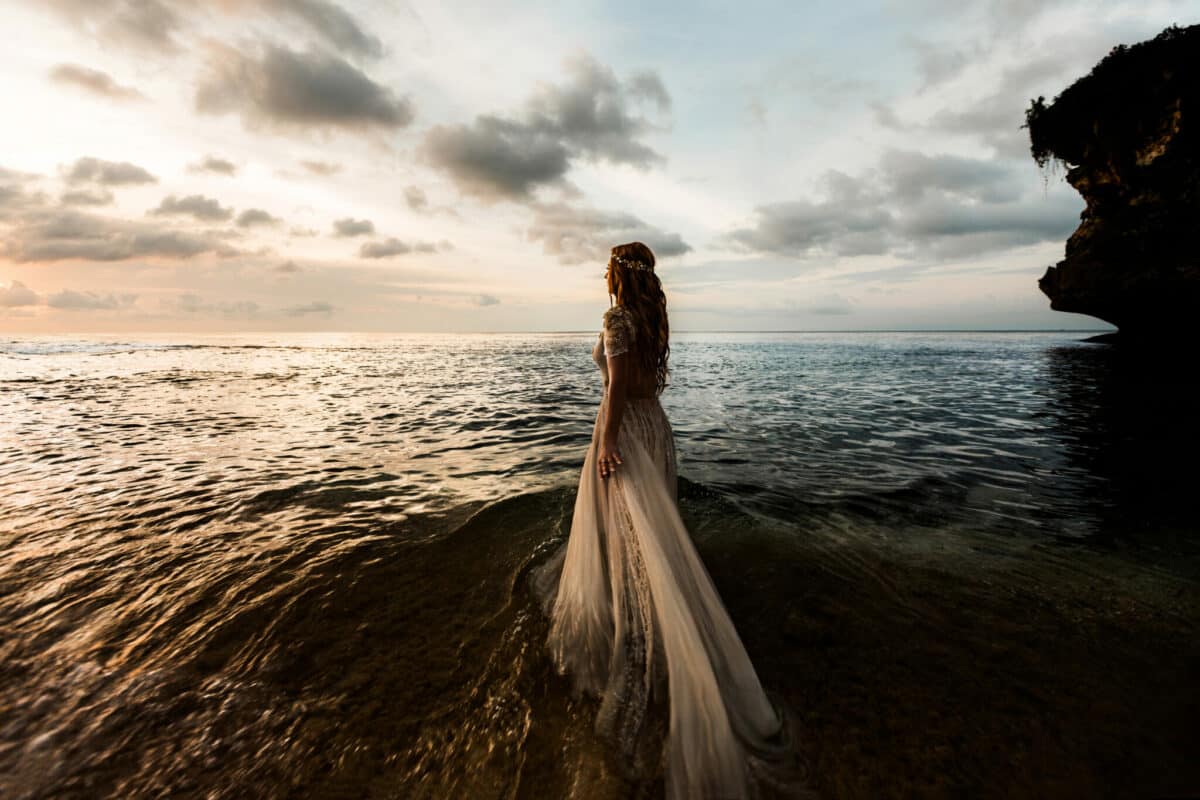
“The Sea Gypsy” by Richard Hovey
I am fevered with the sunset,
I am fretful with the bay,
For the wander-thirst is on me
And my soul is in Cathay.
There’s a schooner in the offing,
With her topsails shot with fire,
And my heart has gone aboard her
For the Islands of Desire.
I must forth again to-morrow!
With the sunset I must be
Hull down on the trail of rapture
In the wonder of the sea.
“A Sailor’s Song” by Paul Laurence Dunbar
Oh for the breath of the briny deep,
And the tug of the bellying sail,
With the sea-gull’s cry across the sky
And a passing boatman’s hail.
For, be she fierce or be she gay,
The sea is a famous friend alway.
Ho! for the plains where the dolphins play,
And the bend of the mast and spars,
And a fight at night with the wild sea-sprite
When the foam has drowned the stars.
And, pray, what joy can the landsman feel
Like the rise and fall of a sliding keel?
Fair is the mead; the lawn is fair
And the birds sing sweet on the lea;
But the echo soft of a song aloft
Is the strain that pleases me;
And swish of rope and ring of chain
Are music to men who sail the main.
Then, if you love me, let me sail
While a vessel dares the deep;
For the ship ‘s my wife, and the breath of life
Are the raging gales that sweep;
And when I ‘m done with calm and blast,
A slide o’er the side, and rest at last.
“We Sail Toward Evening’s Lonely Star” by Celia Laighton Thaxter
We sail toward evening-s lonely star
That trembles in the tender blue;
One single cloud, a dusky bar,
Burnt with dull carmine through and through,
Slow smouldering in the summer sky,
Lies low along the fading west.
How sweet to watch its splendors die,
Wave-cradled thus and wind-caressed!
The soft breeze freshens, leaps the spray
To kiss our cheeks, with sudden cheer;
Upon the dark edge of the bay
Lighthouses kindle, far and near,
And through the warm deeps of the sky
Steal faint star-clusters, while we rest
In deep refreshment, thou and I,
Wave-cradled thus and wind-caressed.
How like a dream are earth and heaven,
Star-beam and darkness, sky and sea;
Thy face, pale in the shadowy even,
Thy quiet eyes that gaze on me!
O realize the moment-s charm,
Thou dearest! we are at life-s best,
Folded in God-s encircling arm,
Wave-cradled thus and wind-caressed.
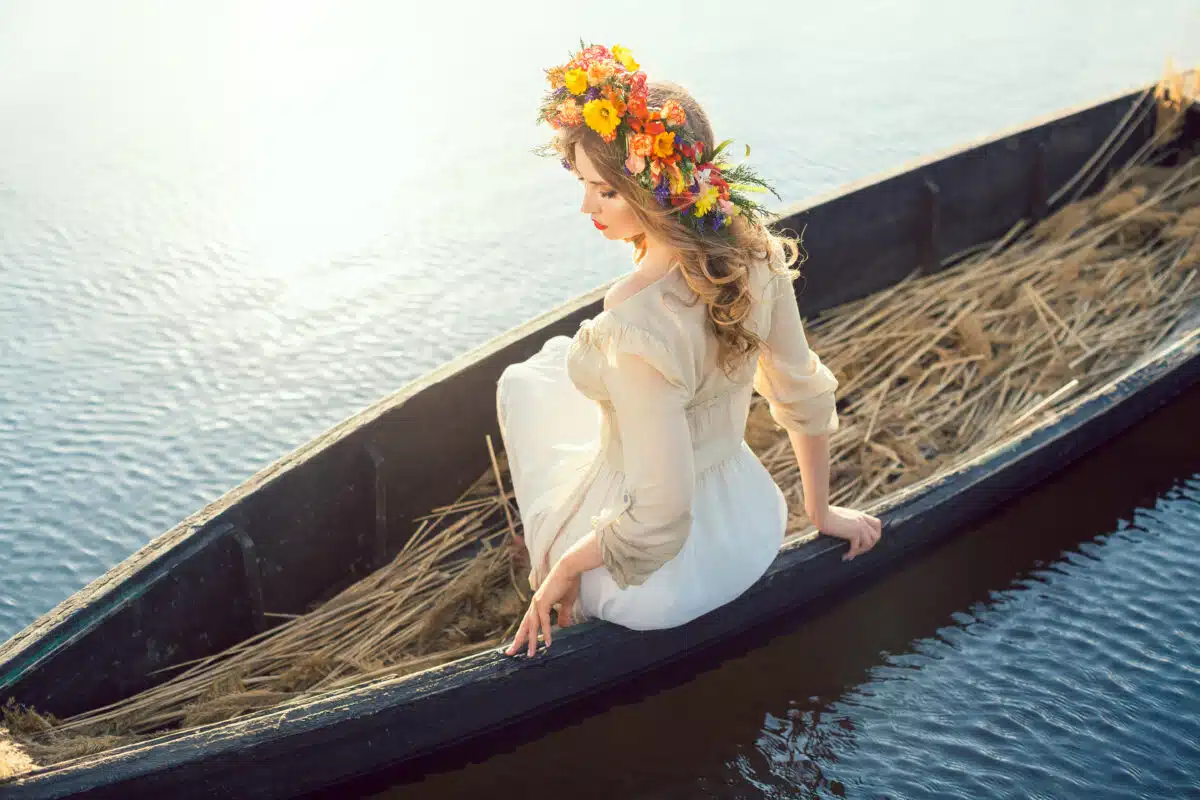
“Our Sails Are Spread Before the Wind” by William Leggett
Our sails are spread before the wind,
And onward, onward swift we fly;
We’ve left our country far behind,
No prospect now invites the eye,
Save the blue sea, and cloudless sky.
Oh! when I wav’d my last good-bye,
To parents, friends, and Mary dear,
It was not fear that dimm’d mine eye,
This heart ne’er felt a thrill of fear —
It was affection caus’d the tear.
And while upon the heaving main
Our vessel dashes prondly on,
To meet those well-lov’d friends again,
With wealth and honours bravely won,
That is the hope I live upon.
But should some cannon pointed true,
Destroy these soothing dreams of glory,
Affection’s tears my grave will dew,
And Mary, when she hears my story,
Will shed love’s holiest tribute o’er me.
“Written While Sailing on the Gulf of Lepanto” by Aubrey Thomas de Vere
All round they lie, deep breath to breath replying,—
Those outworn seamen in their well-earned sleep:
From the blue concave to the dim blue deep
No sound beside. Fluttering all night, or sighing,
Since morn the breeze delicious hath been dying,
And now is dead. On yonder snowy steep
The majesty of Day diffused is lying;
Whilst Evening’s Powers in silence seaward creep,
From glens that violet-shade the lilac vest
Of Delphi’s hills. Ye mariners, sleep well!
Run slowly, golden sands, and noiselessly.
There stands the great Corinthian citadel;
Parnassus there. Rest, wearied pinnace, rest!
Sleep, sacred air! sleep on, marmorean sea!
“Sailing of the Glory” by John Frederick Freeman
Merrily shouted all the sailors
As they left the town behind;
Merrily shouted they and gladdened
At the slip-slap of the wind.
But envious were those faint home-keepers,
Faint land-lovers, as they saw
How the Glory dipped and staggered-
Envying saw
Pass the ship while all her sailors
Merrily shouted.
Far and far on eastern waters
Sailed the ship and yet sailed on,
While the townsmen, faint land-lovers,
Thought, “How long is’t now she’s gone?
Now, maybe, Bombay she touches,
Now strange craft about her throng”;
Till she grew but half-remembered,
Gone so long:
Quite forgot how all her sailors
Merrily shouted.
Far in unfamiliar waters
Ship and shipmen harbourage found,
Where the rocks creep out like robbers
After travellers tempest-bound.
Then those faint land-lovers murmured
Doleful thanks not dead were they:-
Ah, yet envious, though the Glory
Sunken lay,
Hearing again those farewell voices
Merrily shouting.
Short Poems About Sailing
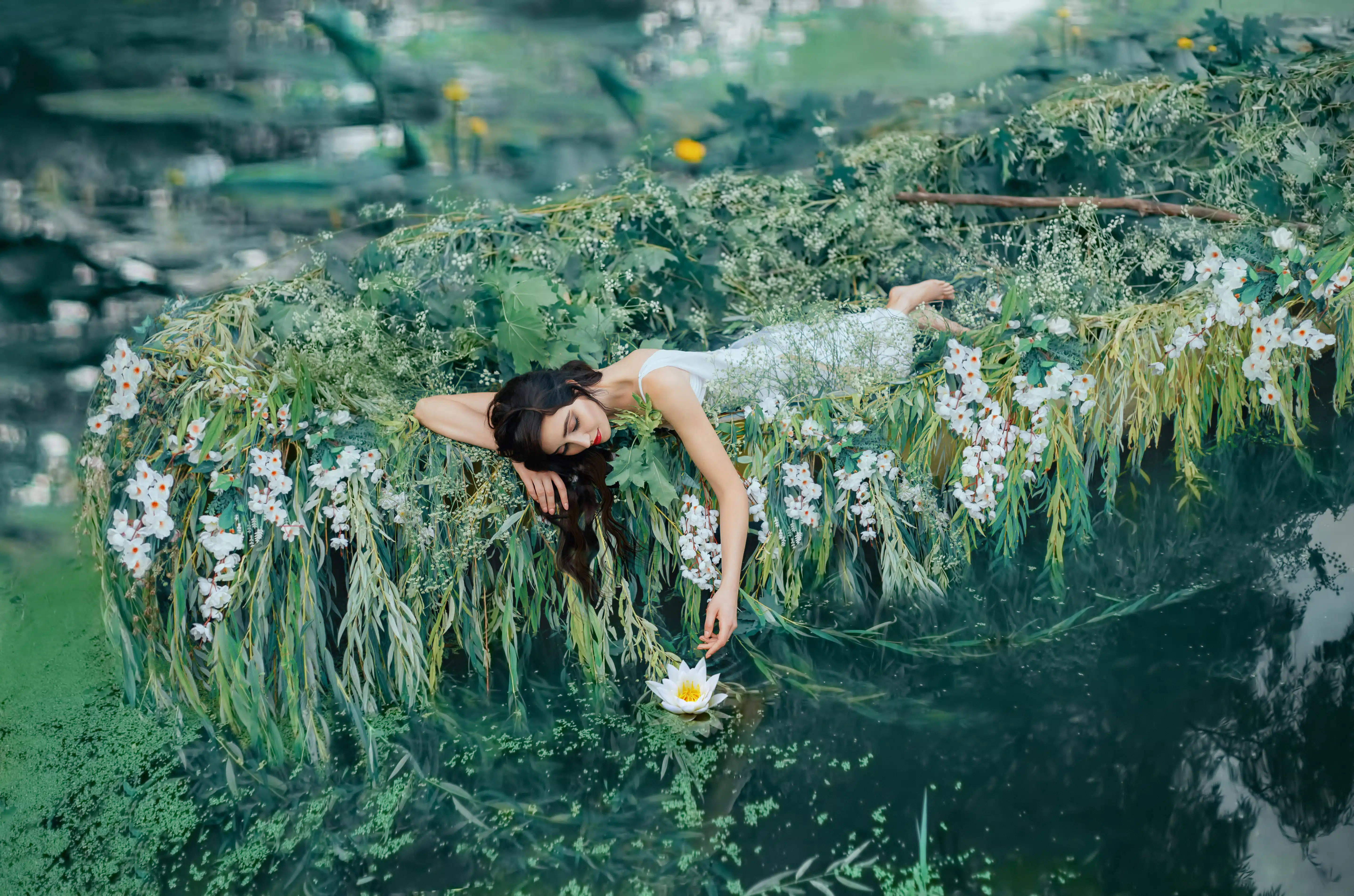
“Sea Calm” by Langston Hughes
How still,
How strangely still
The water is today.
It is not good
For water
To be so still that way.
“Setting Sail” by Emily Elizabeth Dickinson
Exultation is the going
Of an inland soul to sea, —
Past the houses, past the headlands,
Into deep eternity!
Bred as we, among the mountains,
Can the sailor understand
The divine intoxication
Of the first league out from land?
“Requiem” by Robert Louis Stevenson
Under the wide and starry sky,
Dig the grave and let me lie.
Glad did I live and gladly die,
And I laid me down with a will.
This be the verse you grave for me:
Here he lies where he longed to be;
Home is the sailor, home from sea,
And the hunter home from the hill
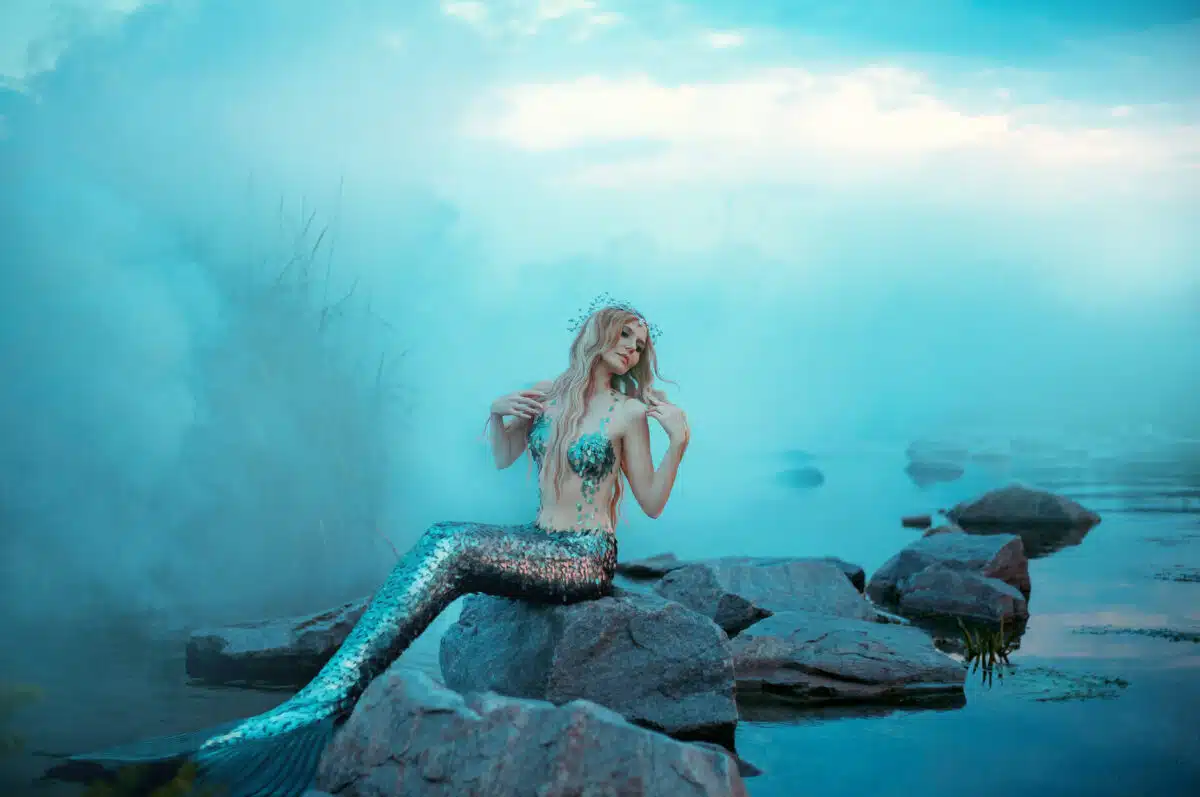
“The Mermaid” by Allen Upward
The sailor boy who leant over the side of the Junk of Many Pearls,
and combed the green tresses of the sea with his ivory fingers,
believing that he had heard the voice of a mermaid,
cast his body down between the waves.
“Here, Sailor” by Walt Whitman
What ship, puzzled at sea, cons for the true reckoning?
Or, coming in, to avoid the bars, and follow the channel, a perfect pilot needs?
Here, sailor! Here, ship! take aboard the most perfect pilot,
Whom, in a little boat, putting off, and rowing, I, hailing you, offer
“A Sailor’s Wife” by Matthew Prior
Quoth Richard in jest looking wistly at Nelly,
Methinks child you seem something round in the belly.
Nell answer’d him snappishly, how can that be,
When my husband has been more than two years at sea?
Thy husband! quoth Dick, why that matter was carried
Most secretly, Nell; I ne’er thought thou wert married.
